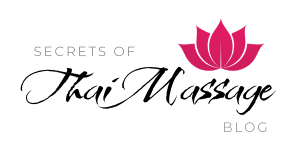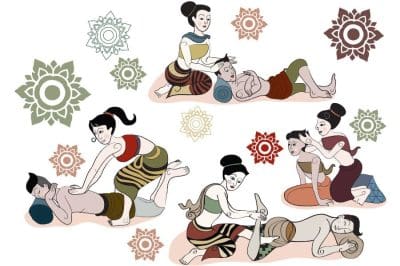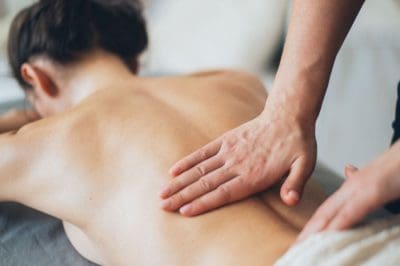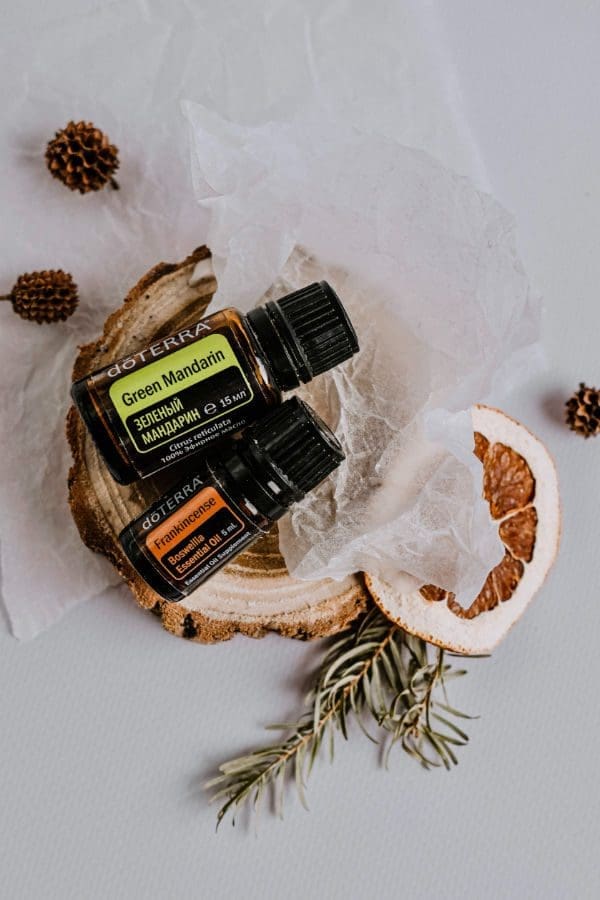
How To Use
Essential Oils For Health
Essential oils can reduce stress, improve sleep, boost immunity, and freshen up your home but, what exactly are they and how can you use them? By the end of this article, you will know the health benefits of essential oils and the many different ways you can use them in your home.
Table Of Contents
This post has been organized into sections.
You can jump to any section by clicking on the links to the right or by scrolling down.
Please leave a comment. We would love to know your thoughts.
What Are Essential Oils?
Essential oils are plant extracts. They are made by steam distillation or cold-pressing different parts of the plant such as flowers, bark, seeds, leaves or fruit. This process captures the compounds we recognize as fragrances.
Essential oil is actually an abbreviated form of “quintessential”. This term stems from the idea that all matter is composed of four elements – fire, water, earth and air – with an additional fifth element known as quintessence considered to be life force or spirit.
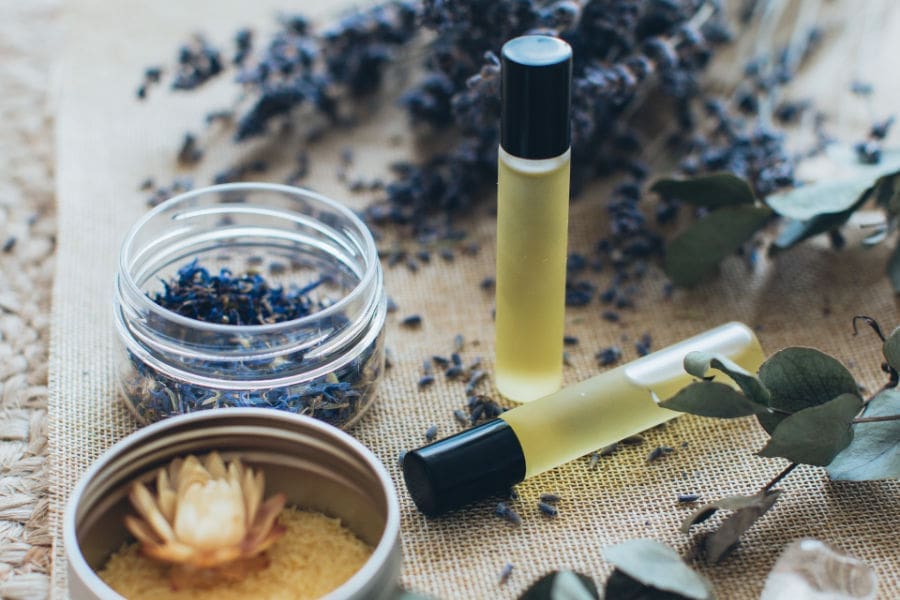
Essential Oil Safety
There are almost 100 different essential oils available in shops and online. The sheer number can be bewildering. However, it is better to get to know a few essential oils well and undertand their uses than have a large collection most of which are hardly used.
You don’t need a large collection because there is a lot of therapeutic overlap. It is also prudent to remember that essential oils lose their effectiveness over time, so only buy those you intend to use regularly.
These are the basics you should know before getting started with essential oils.
A “carrier oil” should always be used when applying oils directly to your skin. Oils such as coconut and jojoba dilute the essential oil without affecting its properties.
Before applying essential oil to a large area of skin, always conduct a patch test first.
Do not use essential oils on children under 12 years or during pregnancy without first seeking medical advice.
Many essential oils are toxic if taken by mouth. Only do so under proper medical supervision.
Purchase authentic essential oils. There are many “fragrance” oils and adulterated essential oils available that do not offer the same health benefits.
There are no hard and fast rules when it comes to choosing essential oils but a good place to start is to ask yourself why you are looking to use them for. Deciding your “why” is a good first step to helping you choose the right essential oils for your needs.
The Health Benefits
Essential oils contain many medicinal qualities that benefit not only your physical but also spiritual and emotional wellbeing. We will explore five key benefits of essential oils and their impact on your health. Here is a short list of some of the main benefits:
1. Relief from Stress
Stress affects us all at one time or another. Unmanaged, it can have a negative impact on our health, quality of life and in particular our sleep pattern. Essential oils can help you to feel more relaxed and calm especially when under pressure.
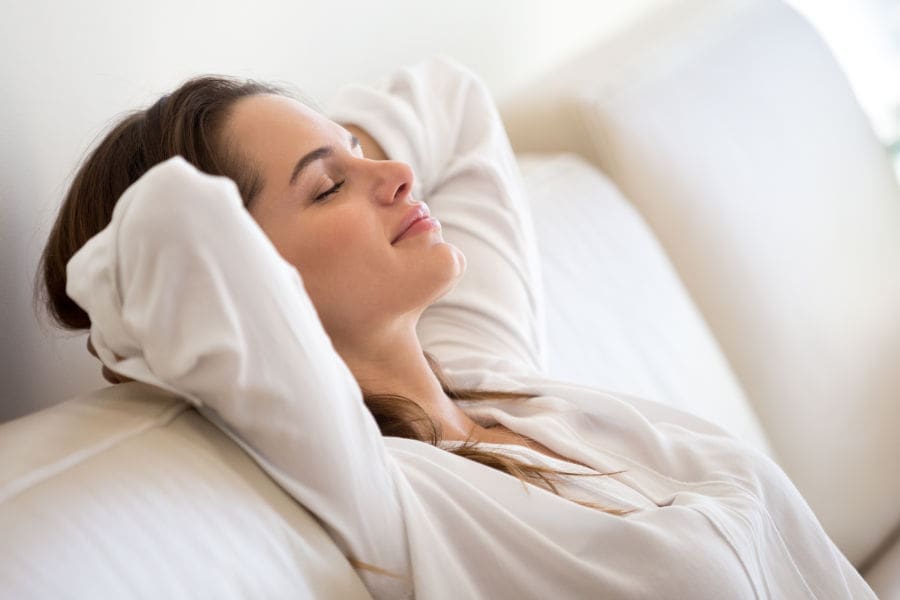
2. Boost Immunity, Fight Infections
Essential oils are known to have anti-inflammatory properties, as well as antiviral, antibiotic, and antifungal properties. These can be used to fight infections and boost the immune system.
3. Reduce Aches And Pains
There are many oils that can be applied topically or used with a diffuser to help reduce aches and pains. Research indicates that essential oils are especially helpful in treating postoperative pain, obstetrical pain and gynaecological pain.
4. Promotes Restful Sleep
Essential oils with sedative qualities may be especially helpful to those having trouble falling or staying asleep. Lavender oil is particularly well-suited as a sleep aid and leaves users feeling relaxed and calm.
5. Boost energy Levels
Some oils have stimulating properties and can increase oxygen levels in your brain, leaving you feeling revitalized and focused.
Ways To Use Essential Oils
Aromatherapy oils provide numerous health benefits ranging from skin care to stress reduction. Inhalation is the primary way of using essential oils; this can be done either directly out of the bottle, via diffuser, or using a humidifier.
They can also be mixed with carrier oil and applied directly to the skin, or you could get creative by including them in shampoo, body wash or the bath.
Inhalation
The easiest method of inhalation is to simply open a bottle of pure essential oil and take a few slow deep breaths. You should try to avoid letting the undiluted oil directly contact your skin.
Combined with steam inhalation, essential oils are an effective way to treat a cough or stuffy head. You’ll need a bowl and towel. Put the bowl on a level surface like a table, add steaming hot water and a few drops of essential oil. Cover your head and the bowl with the towel to trap the steam and close your eyes. Take slow deep breaths while inhaling the steam. Repeat as often as you need.
When diffusing essential oils, keep in mind there may be pregnant women, nursing mothers, pets and children nearby – some essential oils could pose a health risk for them.
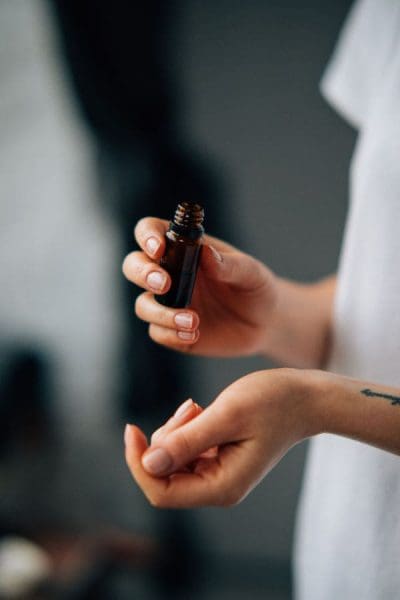
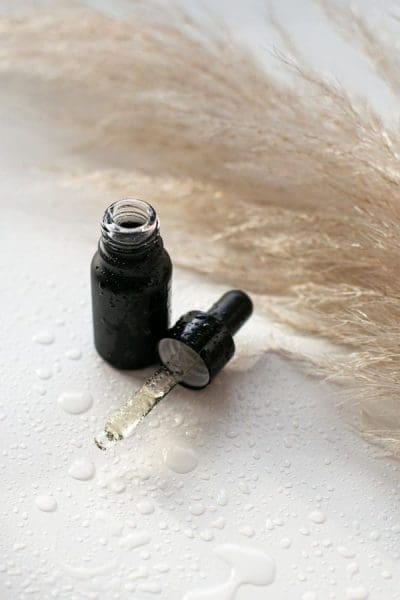
Diffusers And Sprays
Diffusers are small electronic devices that come in many shapes and sizes. They create a light and airy mist which when combined with essential oils, fill the room with a health-giving aroma. Diffusers provide a simple way to use essential oils in the home or workplace that benefits mind and body while creating a pleasant atmosphere.
For those looking for a non-electronic diffuser, try putting some filtered water and a few drops of essential oil into a small hand held spray bottle or spritzer. You can add small rock crystals such as rose quartz or moss agate to the bottle also. Add spray top and shake well before each use. Be sure to label your bottle to prevent any possibility of mis-use!
Compress, Bath, Massage
These methods involve applying essential oils directly to the skin, which carries a slight risk of adverse reaction so care is needed.
For a compress: add 4-5 drops of essential oil to a bowl of hot (as warm as you can bear) or ice-cold water. Then, place a clean cloth (such as muslin or flannel) in the water to absorb the essential oils floating at the surface. Squeeze out excess water and put the cloth on the affected area or forehead. Replace the compress when it has cooled or warmed to skin temperature.
For the bath: dilute a few drops of essential oils with a carrier oil before adding it to your bathwater. Or use an essential oil salt bath or bubble bath product.
For massage: dilute no more than 3-6 drops of essential oil per 10ml of carrier oil. Massage combines particularly well with the right essential oils to create deep physical and emotional healing.
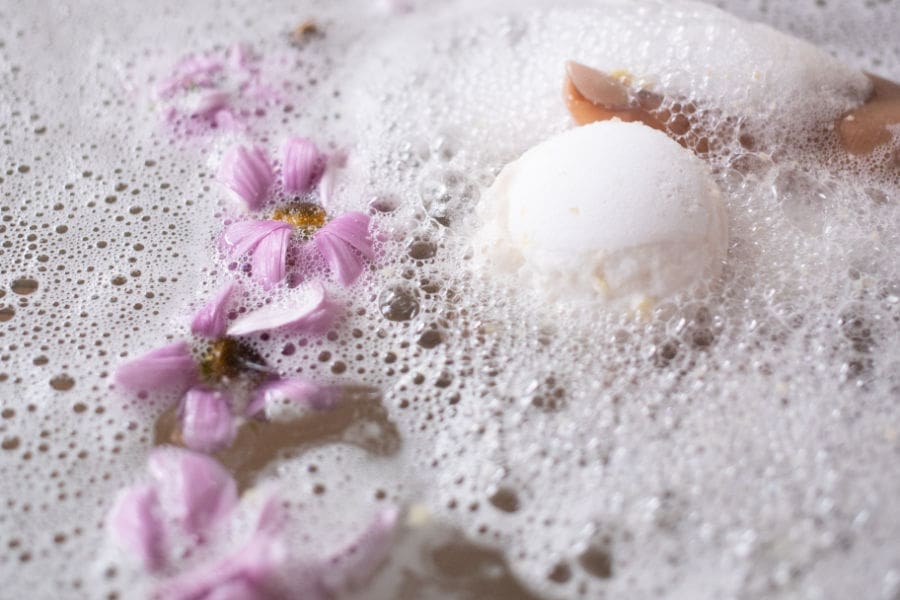
Using Carrier Oils
Many natural food stores and speciality shops that specialize in bath and skin care products sell carrier oils. When selecting these oils, organic cold-pressed varieties such as sweet almond or apricot oil, grapeseed or jojoba oil, avocado are recommended as they are not strong-smelling.
Carrier oils should be stored in the refrigerator where they should last for about a year. If they start to smell rancid, you should discard them.
Sustainable Sources
Be mindful of what plants are being used to make the essential oils you purchase. Some come from rare trees and flowers. Understanding their origin is important; some endangered plants could exist sustainably elsewhere and some are more at risk than others. If in doubt about their claim that the essential oil comes from sustainable sources, investigate further before making your purchase. It goes without saying that organic oils are preferable.
The increasing demand for essential oils puts pressure on endangered aromatic plants. Some of the more vulnerable species are:
- Palo santo (Bursera graveolens)
- East Indian Sandalwood (Santalum album)
- Silver fir needle (Abies alba)
- Frankincense (Boswellia sacra)
Rosewood (Aniba roseadora) - Atlas cedarwood (Cedrus atlantica)
- Vanilla (Vanilla plantifolia)
Laurel leaf (Laurus nobilis) - White sage (Salvia apiana)
Fortunately, there are many essential oils that are of less concern, from the viewpoint of sustainability. These oils should meet the majority of your essential oil needs.
Summary
Essential oils are highly concentrated extracts taken from flowers, fruits, leaves, bark and roots of medicinal plants. These oils have been shown to improve sleep, reduce anxiety, relieve headaches and other pain, fight infections and boost energy levels.
The most common use of essential oils is by inhalation, both because they have a wonderful smell and also for their therapeutic properties. You can use them in diffusers or sprays, compresses, when taking a bath and in lotions and soaps. When combined with massage essential oils can create deep physical and emotional healing.
You don’t need to keep a large collection because there is a lot of therapeutic overlap and they degrade over time. It is better to know how to use a few essential oil favourites well than buy ones you rarely use.
Sawadeeka!
I am Darunee (also Thai Nee) owner of the spa and VTCT qualified Thai massage therapist. It is my pleasure to welcome you to Thai Nee Spa.
We are a Thai Massage and Relaxation Therapy Centre based in the historic town of Kenilworth in Warwickshire.
- 07944 031 051
- info@thainee.spa
- 25 The Square, Kenilworth, Warwickshire CV8 1EF

Further Reading
Traditional Thai massage is a healing practice using rhythmic pressing and stretching of the body with roots that go back to the time of the Buddha.
Much more than a way to help you relax, massage therapy is an important tool for promoting better mental and physical health and can improve the quality of your life.
